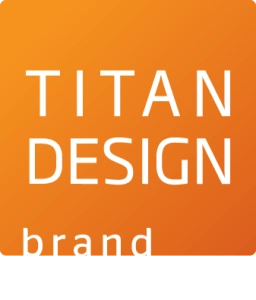Anti-racist protests around the world, known as “Black Lives Matter”, triggered by the brutal murder of Afro-American George Floyd, were supported by several popular brands on social media.
World-famous brands generate great public attention, especially the attention of the consumers. That’s why it is so important for brands to express their attitude in public, and support the faith against racism, so they can place themselves on the right side, and additionally point out the values they stand behind.
A powerful message is usually more important than design because the focus should be on words. In any case, the design should follow and support the main message.
Solidarity above all
Nike created great wordplay, modifying its slogan especially for this opportunity – an excellent example of a powerful fusion of words and design, shaping a strong synergy and sharing brand values in a well-thought and strategic way. Don’t turn your back to racism and don’t be a racist – these are clear messages, addressed to everyone, and clearly fighting against injustice, discrimination, and inequality.
They left rivalry aside to unite around an important message
Adidas showed its attitude on Twitter and shared the message about being above the situation, the importance of being united around the powerful message, that overcomes rivalry, numbers of sold sneakers, and other sports equipment.
We can make a difference only if we are united. This is the only way to move forward. That was the message Adidas shared. Solidarity, sense of community are probably two forgotten social categories, but probably the most important ones in hard moments. This is how popular brands can reach the young population because they represent authority for the young population, someone to look after.
Logo change
Both brands adjusted their logos to the current situation, focusing on the idea that discrimination and racism have no excuse, and everyone should fight against it. They used black & white logos to point out the message – Black Lives Matter.
Speaking about Twitter, this social network actively participated in an anti-racist campaign, changing the profile photo into a black & white version, and placing a black header in order to show solidarity with #blackouttuesday that later spread on Instagram. Also, many people posted black photos on their profiles, to support the fight against discrimination, and the Afro-American community.
Expressing the attitude
Brands are well-aware of the fact expressing the political, human, or social attitude is the best tipping point for staying in the public spotlight, and taking a relevant position within the target audience. It is particularly easy to do if such an attitude is socially accepted, just like the one fighting discrimination.
So far, brands gave their support via logo change, posting important messages on social media, etc. It is clear they have to communicate their attitude about this important social question, not only on social media but in other ways too. Changing the logos is not enough.
If brands really see themselves as participants in important social questions, then they should use their authority and power to contribute to changes. Changing a logo into black & white basically doesn’t mean anything. YouTube’s 1 million dollar donation as a sign of solidarity against racism and violence doesn’t mean anything if the brand doesn’t stay consistent in other aspects of fighting the discrimination.
YouTube is a great example. On one side, they donate money to support the fight against racism, on the other side, they don’t fight against the ones who record and place racist content on their platform. This inconsistency has a negative influence on the brand as it displays double standards.
“If you are neutral in situations of injustice, then you have chosen the side of the oppressor.” this is a quote of a famous South-African activist for human rights, Desmond Tutu.
Political corporate social responsibility
The relatively unknown concept of a business model in Serbia (though widely spread around big worldwide corporations), political corporative social responsibility, is a higher level in comparison to the current CSR – corporate social responsibility. Responsibility private corporations have related to important social topics is huge, and the way they react is crucial for society.
CSR is a part of the business that should make a positive impact on society, financially supporting socially-responsible projects, the ones that will develop different social areas. Great examples are scholarships for the young, rebuilding parks, kindergartens, kids’ playgrounds, but also investing in research that will enhance environmental care.
PCSR goes one step further from the classic corporate social responsibility and takes care of the way the brand addresses the consumers, local communities, or suppliers. During the #COVID19 crisis, and #blacklivesmatter protests, we witnessed a strong response of famous corporations to these two, quite different yet similar crises. They are not limited to one territory but spread around the world.
A global context obliges corporations and brands to react, not only because the world expects their reaction but also because they cannot skip this important moment. The history of the 21st century is being written in this year, and everything that happens now will have far-reaching consequences on the economy and society in the next few decades.
Brands are conscious of these monumental changes and they don’t want to be remembered by staying silent, quite the opposite, they want to be remembered by a powerful and clear message that places them into socially responsible and sensitive companies.
In case you liked this text and you think it could be valuable to someone you know, feel free to share it. Contact us, and book a meeting if you need someone to create a visual identity for your brand, packaging design, or logo.











